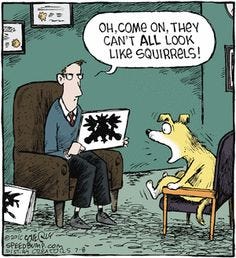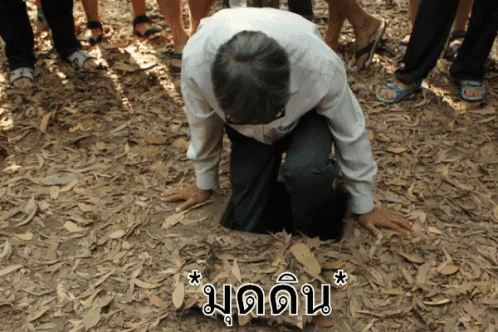Counselling training is something I have wanted to do for as long as I can remember. In recent years, my dream has been to be a counsellor specifically for neurodivergents. And now aged 43, with a 14 year teaching career behind me, I am finally beginning my journey.
There I was in my first session, so excited to be there. Everyone was so lovely, friendly and open. I had enjoyed the activities in the first half of our first session. Sometimes they had felt a little bit uncomfortable, but our trainers explained that we need to push ourselves outside of our comfort zone in order to grow and develop. I especially enjoyed the second activity which involved us remembering one thing about someone in the group and their name. Before the activity, I mentally scanned the room and I was surprised that I was able to remember 80% of the names and a fact about 95% of them.
I have a very good memory for names and information about people, potentially because of my role as a teacher and organiser of a large in person neurodivergent community. I have learned in life that it really helps to know the names and key information of everyone in any group you are leading. But that’s a whole other blog post.
Eyeball gazing
Everything was going so well. And then we came to one of the final activities. The way this unfolded unfortunately led to a mental spiral that lasted well into the next week . We were told to partner up, and once we had done that, we were told that we were about experience a very uncomfortable five minutes.
Bring it on I thought, adventurously, cluelessly. How bad can it be?
One of the trainers then informed us that we were going to stare at each others eyes in silence for five minutes.
Oh
Immediately, an overwhelming feeling of panic plunged into my body, and my feelings of being at ease and confident vanished.
I instantly recalled a similar activity that I had done in a meditation workshop, where we were told to look into the eyes of a classmate that we had been partnered with for one minute. Soul gazing is what they called it.
This was way back when, before I knew I was neurodivergent, and it was a deeply uncomfortable experience. I remember being so confused by the fact that I simultaneously wanted to cry and laugh and run away. I recall being so intensely anxious that sweat trickled down my back. I was unable to hold the eye contact for the entire minute. My eyeballs physically hurt from being stared at, and began to stream, which amplified my acute self consciousness. When the exercise ended, instead of feeling connected as the workshop instructor had intended, I felt inadequate, dominated, vulnerable and very unsettled.
It made me feel powerless. The power dynamic had shifted between my classmate and I. I felt awkward around him for the remaining weeks of the course.
It was an interaction that I never wanted to repeat
As a neurodivergent, I find holding eye contact with people in silence extremely uncomfortable and acutely stressful .
I am able to make eye contact during conversations. I do not love it, but I don’t usually find it intolerably uncomfortable, unless I am conversing with someone who holds eye contact in a prolonged or in a particularly intense way.
Have you ever tried unwavering eye contact in silence?
I asked my neurodivergent communities for their thoughts and feedback. My IRL group almost unanimously agreed that this exercise did not sound neurodivergent friendly, and were outraged that this was an activity that was part of our training. Similarly, the vast majority of responders in my online communities responded that this would bring them moderate to extreme discomfort.(Public and private neurodivergent facebook groups). Only 4% said they’s be ok with participating, commenting that this activity would cause them distress.
Talking it through with my brilliant neurodivergent therapist a few days later helped me realised that my discomfort might not be just an neurodivergent thing, but that there might a trauma response amplifying my discomfort
My mother used to stare intensely into my eyeballs when she was upset with me, and so did my teachers. Looking away was considered disrespectful, and they would bark at me to ‘look at them’. so I’d stare back, eyes streaming, submitting to their power.
Many of us neurodivergents have had similar experiences from parents, teachers and other authority figures who forced eye locking when we were ‘in trouble’. I think I understand now that their rationale was for them to remind us that they had the power, not us.
Secret Tears
Back to my first session. There I was, sitting next to my partner, consciously and desperately hiding any signs of my rising panic, explaining to the trainer, in front of everyone, that this would be very difficult for me as a neurodivergent.
Push yourself out of your comfort zone she said
If only she knew how much I constantly push myself. I am literally always anxious, but I very rarely let that stop me.However, this activity, which I was not mentally prepared for, could potentially cause me to panic in an unmanageable way. I did not want to experience the humiliation of crying in front of the group , and that felt entirely possible if I had to lock eyes with a stranger for 5 endless minutes.
In a small voice I heard myself say ‘I’m sorry but I can’t’
Well this backfired. I expected to feel relief wash over me. ‘Hey look at me setting boundaries!’is not what I thought.
Instead, profound disappointment in myself, and the humiliation I had been trying to avoid, flooded my body and mind.
My refusal played into my difficulties with saying no to things that I don’t want to do, and my struggle to accept when I am not meeting expectations . I am a recovering people pleaser.
The activity began. In the silence, I found tears rolling down my face, which I desperately tried to surreptitiously wipe away and conceal, embarrassed that my classmates or trainers may have noticed. As it was completely silent, I was unable to sniff while I secret cried, adding to my discomfort and shame
Prior to the activity, I had felt confidence, safe and an accepted part of the group . During and after the final activity, I felt disconnected and an emerging anxiety that people in the group would think that I was being difficult and attention seeking. A heady mix of humiliation and RSD with an extra serving of shame. Failure to meet expectations is a big RSD trigger for me as well as other neurodivergents.
My reflection and your thoughts…
So what are your thoughts on this? My trainers said that the reason for this activity was because as therapists we need to learn to hold our clients gaze.
Do you agree?
I used to see a therapist who would fill silences with a deep unwavering stare at me. This would make my head spin with anxiety. I would look away and feel nervous sweat trickling down my back, unable to think of anything to say.
I dreaded the silences and began to fill them with unnecessary chatter. After a few more sessions I stopped seeing her. And to this day when I think of her I remember the unnerving stare
But, on the other hand, maybe I need to learn to get more comfortable with prolonged eye contact. After all, while most neurodivergents struggle with eye contact, some go the other way and hold gazes for longer than typical
My potential discomfort with this might make them feel uncomfortable
Reflecting on this, perhaps I need to myself out of my comfort zone if I am going to be therapist that I have always wanted to be.
Let me know what you think









My thoughts on this are 1) I admire you for being brave to speak out that you weren't comfortable starting the activity. 2) sad that the instructor, supposedly someone teaching and modeling good therapy practices, just brushed off your concerns without practicing any empathy, acceptance or encouragement. 3) when something has this much power to grab hold of your positive posture and completely wreck it, you should probably set out a plan to overcome it, and 4) going from a quick glance during conversation to 5 minutes (or even 1 minute) of prolonged silent staring is probably not the best strategy.
I'm thinking you maybe try to get someone, your therapist maybe or a friend?, to work on it with gradually. Maybe try to make a game out of it and/or start by talking while you are staring to kind of describe your feelings and have the other person give you some verbal reassurance that all those dreadful throngs you're imagining and remembering are not what he/she is thinking at all, and that you're doing great and they admire you for the good work you are doing and what growth much be happening right now.
@JonAcuff has written a great book called 𝙎𝙤𝙪𝙣𝙙𝙩𝙧𝙖𝙘𝙠𝙨 that i highly recommend for getting a hold of your inner dialogue and intentionally making it support your mental health and growth. I bet "changing your soundtrack" with the help of a friend or professional who is actively seeking your betterment.
How does it feel to consider 10 seconds of staring with accompanying back and forth speaking by both stare-ers about what you are seeing, how you are feeling and some positive affirmation of each other. Maybe work up to 10 seconds of silence and then try to start the process over with 20 seconds including narration, 20 seconds of silence and so on..?
I can make eye contact with people during conversation but the longer it holds the more uncomfortable I get. Before I knew I was neurodivergent, I thought I was just shy. But I even start feeling uncomfortable if it’s with a family member or a friend. It feels like they’re taking over “your space”. Am I even making sense 🤦🏻♀️😅